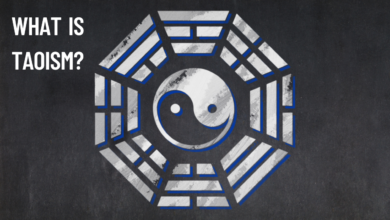
Islamist Kya hai
Islamism ek vichardhara hai jo Islamic tatvon aur moolyon ko samajhne ke liye samarthan karta hai aur samajik, rajnitik, aur vidhiya pranali ko nirdeshit karne ke liye in tatvon ka upayog karna chahta hai.

Introduction
In recent years, the term “Islamist” has become increasingly prominent in discussions about politics, religion, and global affairs. Often used in the context of extremism, terrorism, and political movements, the word “Islamist” carries significant weight and implications. However, it is essential to clarify what this term actually means and to distinguish it from broader concepts like Islam and Muslims. In this article, we will explore the concept of an Islamist, delving into its meaning, goals, and variations.
Defining the Islamist
An Islamist is an individual or group that advocates for the application of Islamic principles and values to guide social, political, and legal systems. This ideology is rooted in a particular interpretation of Islam and seeks to establish an Islamic state or society where Islamic law, known as Sharia, plays a central role in governing public and private life. While Islamism is often associated with political movements and parties, it can manifest in various forms, from peaceful activism to extremist violence.
Also check.
- What is Haram?
- Who is the Current Caliph of Islam?
- What Foods are Forbidden in Islam?
- When was Islam Founded?
- When was Islam Founded?
Key Features of Islamism
- Sharia Law: Central to Islamism is the desire to implement Sharia law in its entirety or in part. Sharia encompasses a wide range of legal, ethical, and moral guidelines derived from the Quran and the Hadith (the sayings and actions of the Prophet Muhammad). However, the interpretation and application of Sharia can vary significantly among different Islamist groups.
- Political Engagement: Many Islamist movements engage in the political process to achieve their goals. They may form political parties, run for office, and participate in elections. Examples include the Muslim Brotherhood in Egypt and the Justice and Development Party in Turkey.
- Social Conservatism: Islamists tend to promote conservative social values, including traditional gender roles, modest dress, and strict moral codes. These values often intersect with their interpretation of Islamic teachings.
- Resistance to Secularism: Islamists are often critical of secularism, which they view as a separation of religion from public life. They aim to replace secular governments or systems with Islamic ones.
Variations within Islamism
It is crucial to recognize that Islamism is not a monolithic or homogenous ideology. There are various strains and interpretations within the Islamist spectrum. Some important distinctions include:
- Moderate vs. Radical: Some Islamists advocate for peaceful and democratic means to achieve their goals, while others resort to violence and terrorism. Moderate Islamists may focus on social and humanitarian issues, while radical groups seek to establish Islamic states through violent means.
- National vs. Transnational: Some Islamist movements are primarily focused on national issues and work within the framework of a particular country, while others have a transnational agenda and aim to create a global Islamic state, such as ISIS or Al-Qaeda.
- Reformist vs. Traditionalist: Within the realm of Islamic jurisprudence, there are reformist Islamists who advocate for a reinterpretation of Sharia to align it with modern values and traditionalists who adhere strictly to traditional interpretations.
Challenges and Concerns
The concept of Islamism raises several challenges and concerns, both for Muslims and non-Muslims. Critics argue that some Islamist movements undermine human rights, restrict individual freedoms, and use violence to achieve their goals. However, it is essential to avoid painting all Islamists with the same brush and to distinguish between those who engage in peaceful political processes and those who employ violence.
Conclusion
Islamism is a complex and multifaceted ideology that has played a significant role in shaping the political landscape of many Muslim-majority countries. While some Islamist movements have been associated with violence and extremism, others have chosen peaceful and democratic means to advance their vision of Islamic governance. Understanding the nuances of this ideology and its various manifestations is crucial for fostering constructive dialogue and addressing the challenges it presents.

FAQs
Islamism Kya Hai?
Islamism ek vichardhara hai jo Islamic tatvon aur moolyon ko samajhne ke liye samarthan karta hai aur samajik, rajnitik, aur vidhiya pranali ko nirdeshit karne ke liye in tatvon ka upayog karna chahta hai.
Islamism aur Islam Mein Antar Kya Hai?
Islam ek dharm hai, jabki Islamism ek rajnitik vichardhara hai. Islamism Islam ke tatvon ko samajhne aur vyavasthit karne ki koshish karta hai, jabki Islam ek dharmik vishwasa hai.
Islamism Mein Sharia Ka Kya Mahatva Hai?
Islamism mein Sharia ka mahatva adhik hota hai. Sharia ek pramukh bhaavna hai jo kanoon, niti, aur vyavhaar ko niyantrit karti hai aur Islamism ke anuyayiyon ke liye mahatvapurn hai.
Islamism Ke Lakshan Kya Hain?
Islamism ke mool lakshan mein Sharia ka palan, rajniti mein bhaag lene ki pravriti, samajik pariprashtha, aur dharmik moolyon ka samarthan shaamil hai.
Islamism Kitne Prakar Ke Hote Hain?
Islamism alag-alag prakar ke ho sakte hain, jaise madhyamvadi aur utkrisht islamavad, deshik aur antarrashtriya islamavad, aur sudharak aur paramparik islamavad mein antar hota hai.
Kya Sabhi Islamavad Vargiy Hote Hain?
Nahi, sabhi islamavad ek hi jaisa nahi hota. Kuch islamavad shanti aur loktantrik upayon ka samarthan karte hain, jabki doosre hinsa aur aatankvaad ka sahara lete hain.
Islamism Ke Prati Sankat Aur Chinta Kya Hai?
Islamism vichardhara ke chunauti aur chintayein hain, jisme manavadik adhikar, vyaktigat svatantrata par pratibandh, aur lakshya prapt karne ke liye hinsa ka sahara lene ki aarop bhi shaamil hain. Lekin yah mahatvapurn hai ki sabhi islamavad ko ek hi dhang se paint nahi kiya jaye aur shanti aur hinsa ke beech ka antar samjha jaye.
Islamism Ki Mudde Par Vivek Kaise Banaya Jaye?
Islamism ke vivad ko samjhne aur uske vibhinn rupon ko samajhne ke liye dhyan dena mahatvapurn hai. Shanti se rajniti karne vale islamavadon aur hinsa ka sahara lene vale islamavadon ke beech bhedbhaav karke hi hum sakaratmak samvad badha sakte hain.




